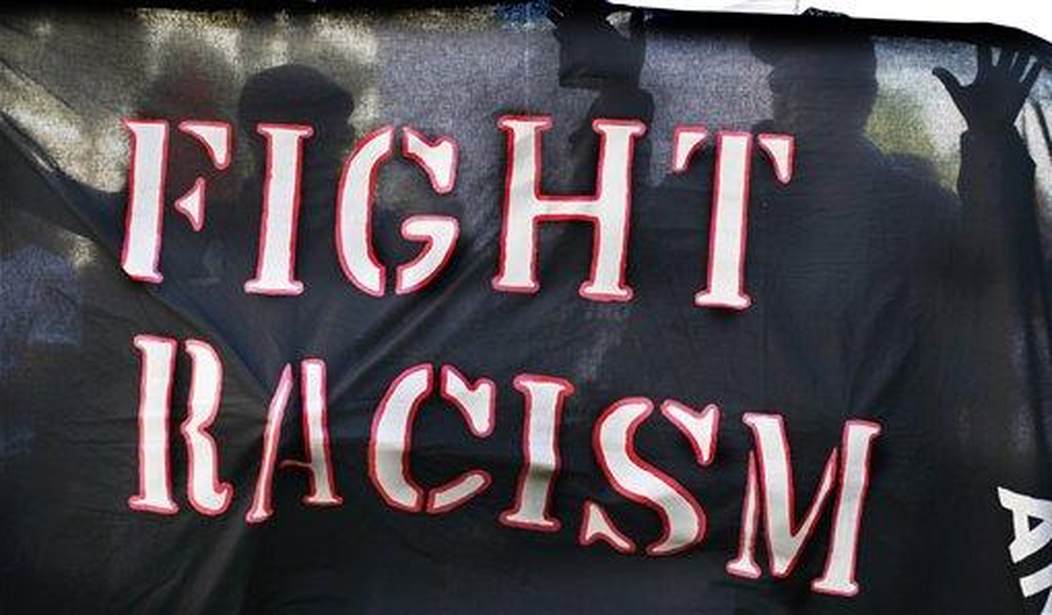If you’re up for a challenge, a school in New York’s got just the thing.
The State University of New York at Cortland is hosting a three-week endeavor to clean up America.
Per the official invitation, it’s “open to all members of the SUNY Cortland community, regardless of age, race, ethnicity, prior anti-racism work.”
Participants are “welcome to share the challenge with friends and family,” but the event’s Facebook group — and its diary-oriented “reflection form” — are for SUNY Cortland attendees only.
Here’s how everyone involved will make a difference: As part of the college’s “commitment to equity,” it’s championing a “21-Day Antiracism Challenge.”
Antiracism, as you may know, is quite different than not being racist.
According to UCLA Law Professor Kimberlé Crenshaw, “Antiracism is the active dismantling of systems, privileges, and everyday practices that reinforce and normalize the contemporary dimensions of white dominance.”
Does “structural racism” exist? Is racism intentionally engineered into all of the nation’s institutions with the sinister goal of harming people because they aren’t white?
Racism was certainly institutionalized long ago. It seems SUNY Cortland has discovered our current status is the same.
And it’s finally time for a fix.
From the website’s “How Will My Participation Make a Difference?” section:
Change is hard, especially when we look at hundreds of years of structural and systemic inequality. The challenge is a way to become familiar with topics of privilege, oppression, equality and social justice. By challenging yourself to learn and grow, you can spark change in yourself — which can create a ripple effect in your family, workplace or school, community and beyond.
Society sure has evolved. Individuality was once emphasized. More contemporarily, it appears, a person is defined by his or her race, and he or she must be “represented” by lots of others who share that identity.
SUNY says the Challenge will teach partakers “how to better support Black and underrepresented colleagues, students and community members.”
Five additional benefits await:
- Learn and grow as individuals and as a community
- Foster awareness, compassion and understanding
- Encourage dialogue surrounding difficult topics
- Become empowered to confront issues of racial equality
- Begin to understand issues of power, privilege, oppression, equity and social justice
Equity, some might say, sits at odds with the traditional notion of school or — more accurately — with that of grading.
Equity seeks to give everyone the same grade, rather than allow each person to earn a different grade depending upon performance.
But it looks to be where we’re headed:
Stanford's New Research Lab Calls Out Causes of America's 'Racial Hierarchy': Public Education and Ostensible Meritocracy
https://t.co/JsEk8R6vs3— RedState (@RedState) March 9, 2021
California University Eyes 'Radical' BIPOC Honors Program Based on Equity Instead of Grades
https://t.co/raV7G9u01m— RedState (@RedState) August 12, 2021
Each day of the Challenge will feature a different theme.
Among them:
Day 7: Understanding Privilege
Day 9: Black Lives Matter
Day 12: Defund the Police
Day 14: Microaggressions
Day 19: Antiracism and Equity in the Workplace
Day 20: Racism and Other ‘Isms.’
Recommended reading and viewing are supplied.
As for ‘isms’:
- Read/Watch: Rep. Ocasio-Cortez’s speech on standing up to sexism and ‘violent language’
- Watch: From Overt to Covert Racism – How Professional Black Women Still Suffer From A Lingering Legacy Of Bias
- Read: Climate Justice is Racial Justice, Racial Justice is Climate Justice
- Watch: Reversing Runaway Inequality: Racial Capitalism (From the video: “Instead of thinking about racism and capitalism separately, we’re going to think about them as one connected system…”)
For those wanting to understand privilege, here ya go:
- Watch: What is Privilege then take the How Privileged Are You quiz
- Read: EXPLAINING WHITE PRIVILEGE TO A BROKE WHITE PERSON…(PDF)
Students will also read about How White People Got Made — “Whiteness is one of the biggest and most long-running scams ever perpetrated.”
Plus:
Read: 6 Things White People Say That Highlight Their Privilege
- “It’s not my job to fix racism because I’m not racist.”
- “I don’t see color.”
- “There’s no need to worry about the police if you’re not doing anything illegal.”
- “I don’t want to post about racism on social media because I’m scared of the backlash.”
- “I don’t have white privilege.”
- “I’m not sure when I should start talking to my kids about racism.”
And why 21 days?
The school lays it out:
Some say it takes three weeks — or 21 days — to cement a new habit. Ideally, these 21 days will be the beginning of a lifelong commitment to equity for all.
Will 21 be enough? It’s a lot of information to process.
But if the plan succeeds, those who commit to equity will be able to mount microaggressions, abolish the police, and do away with capitalism — AKA the ability of Americans to own their own businesses.
And the world will definitely be different when they’re done.
Way different.
-ALEX
See more pieces from me:
China Bans ‘Sissy’ and ‘Girlie’ Men From Entertainment
Colorado University Hosts Teacher Training to Fight the ‘White Supremacy’ of ‘Productivity’
State University Seeks Professor of ‘Structural Racism, Oppression, and Black Political Experiences’
Find all my RedState work here.
Thank you for reading! Please sound off in the Comments section below.













Join the conversation as a VIP Member